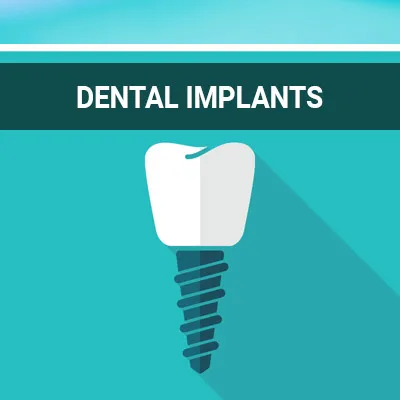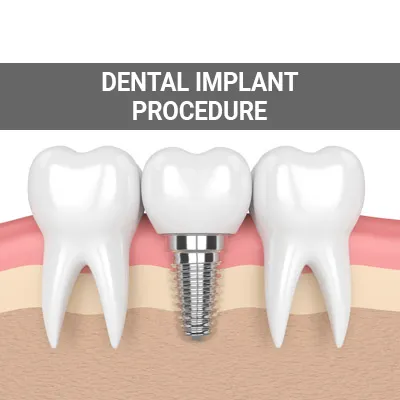Am I a Candidate for Dental Implants West Melbourne, FL
No one should have to live with missing teeth that cause cosmetic, functional, or oral health issues. In most cases, many people with missing teeth find dental implants to be a long-term solution. It is helpful to understand who makes an ideal candidate for dental implants and what factors you should consider when choosing the right teeth replacement solution.
Dental Implants are available at Capeside Dental in West Melbourne and the surrounding area . We provide information about the process, answering questions, and discussing all possible options. Call us at (321) 499-2995 to learn more about dental implants and schedule an initial consultation today.
An Overview of Dental Implants
According to the American Academy of Implant Dentistry, more than three million Americans have dental implants, and the number continually grows by approximately 500 thousand each year. Dental implants are small titanium posts that are placed into the jawbone to serve as the root of a replacement tooth. The titanium posts are later topped with the replacement tooth or teeth usually in the form of a crown, bridge, or denture.
Individuals with missing or severely damaged teeth can achieve a more attractive smile and restore their oral health and function to an ideal level through dental implants. Unlike with dentures, there are no messy gluing and cleaning procedures and they do not have to be taken out at night. They are the tooth replacement option that most closely resembles the function of natural teeth.
“Individuals with missing or severely damaged teeth can achieve a more attractive smile and restore their oral health and function to an ideal level through dental implants.”
How Dentists Determine Candidates for Dental Implants
When patients visit the dental office, the dentist will perform a thorough examination to determine if the condition of their oral health may result in dental implant complications. Our dentist may recommend the proper treatment to restore good oral health and a patient's dental implant candidacy if any issues are detected.
When determining whether a patient can safely and effectively receive dental implants, the dentist may consider the patient's overall wellbeing during the initial consultation for dental implants. Since the treatment requires surgery, the patient needs to be healthy to undergo the procedure. Also, certain conditions may affect the way the bone heals around the implant and the long-term success of the procedure, including:
- Cardiovascular conditions
- Diabetes
- Excess alcohol intake
- Medications such as NSAIDs, antidepressants, and bisphosphonates
- Smoking
Patients must complete treatment for any preexisting condition to prevent infection during the implant procedure.
“Patients must complete treatment for any preexisting condition to prevent infection during the implant procedure.”
Factors That Enable Patients to Receive Dental Implants
Healthy Gums
Having healthy gums is crucial to a patient being able to receive dental implants. Gum disease is the leading cause of tooth loss in adults and is, therefore, one of the most common inhibitors to being eligible for dental implants. Periodontal diseases damage the gum and jawbone supporting the teeth. Since dental implants integrate with the jawbone, any infection that affects the gum may also jeopardize the jawbone. There is a high risk of implant failure in patients with uncontrolled or untreated gum disease. Until the condition is under control, the dentist will not recommend getting dental implants.
Sufficient Bone Density
Aside from healthy gums, having healthy bone density is also crucial to dental implant candidacy. Bone density affects the condition of the jawbone. Jawbone health is crucial because it provides primary support for the implant. Without proper reinforcement from a strong bone, the implant restoration may come loose. The dentist will examine the jawbone to ensure it has the strength and density to hold an implant. Jawbone deterioration may follow advanced gum disease, causing erosion of healthy bone structure or tooth loss, when the jawbone stops receiving stimulation due to tooth loss. Fortunately, the dentist can use a bone graft to boost the strength and integrity of the jawbone.
“Aside from healthy gums, having healthy bone density is also crucial to dental implant candidacy.”
Check out what others are saying about our dental services on Yelp: Am I a Candidate for Dental Implants in West Melbourne, FL
Missing or Crowded Teeth
Missing or crowded teeth can also prevent a person from being a dental implant candidate. Tooth loss can be a result of infection, trauma, or accident. Sometimes, infection sets in if patients fail to adopt good oral hygiene practices such as regular brushing and flossing, mouthwash, and visiting the dentist for checkups and cleaning.
Additionally, people with crowded teeth may need orthodontic treatment or tooth extraction before receiving a dental implant. These treatments can help create enough space in a patient's mouth to allow for dental implant placement. Anyone interested in getting dental implants needs to be ready to take their oral health seriously. Poor oral hygiene may cause premature failure of the implants. Usually, the dentist will provide instructions on how to take care of the new teeth properly.
“Additionally, people with crowded teeth may need orthodontic treatment or tooth extraction before receiving a dental implant.”
Questions Answered on This Page
Q. How do dentists determine whether a patient is a candidate for dental implants?
Q. What factors enable a patient to receive dental implants?
Q. Do missing or crowded teeth affect dental implant candidacy?
Q. What other common issues can prevent a person from being a dental implant candidate?
People Also Ask
Q. What are the benefits of dental implants?
Q. What happens after the procedure?
Q. What dental treatments are possible in a smile makeover?
Q. How can I make the most of my dental implant consultation?
Other Common Inhibitors to Dental Implants
Teeth Grinding or Clenching
People who grind or clench their teeth may need to take extra precautions to protect their dental implants. Teeth grinding, also known as bruxism, can be the result of anxiety, sleep, stress, and hyperactivity. Bruxism places undue stress on the teeth and causes premature implant failure. Patients who grind their teeth need to take necessary precautions before getting dental implants, including the use of a mouthguard to protect the teeth from the effects of bruxism.
Patience for the Procedure
Another factor that may determine if dental implants are right for you is patience. Dental implant restoration may take as long as six months because of the osseointegration process. The dentist will only place the final restoration on the dental implants after the bone heals fully. Preliminary procedures such as bone graft may add to the timeline. Fabricating the final restoration may also take weeks. Anyone considering dental implants needs to prepare for the commitment.
“People who grind or clench their teeth may need to take extra precautions to protect their dental implants.”
Frequently Asked Questions
Q. What happens if I have crooked or crowded teeth but need dental implants?
A. Crowded or crooked teeth can prevent a person from receiving dental implants successfully. Fortunately, patients can receive dental treatments such as tooth extraction to create space to place the implants. In addition, patients with crooked teeth may need teeth straightening treatment to align their teeth.
Q. Is there an age limit to getting dental implants?
A. Dental implants are suitable for adults with permanent teeth. Although older patients can get implants, they may not have the required bone density to support an implant, especially if they have worn dentures for long. In such cases, a mini dental implant may be the more appropriate option since the metal post is shorter and needs less bone structure.
Q. Can I still receive dental implants if I wear dentures?
A. The dentist may be able to support your dentures with dental implants. Implant-supported restorations are usually stronger and fitting than regular dentures. It will also prevent further jawbone resorption, which is common with denture wearers.
Q. How long does it take to receive dental implants?
A. The number of implants determines the duration of treatment. It may take about an hour to complete the placement. There is a waiting period during which the bone heals. Once osseointegration is complete, the dentist will complete the final restoration in no time.
Q. Are there any risks associated with dental implant placement?
A. Like any surgical procedure, there are some risks associated. Issues are rare, and are usually minor and easily treatable should they occur. Such risks include infection, injury or damage to the surrounding oral structures, sinus issues, and nerve damage.
Dental Implant Terminology
Call Us Today
We are here to help patients make the right decision about treatment and determine if they are a good candidate for dental implants. If you are interested in learning more about dental implants treatment, then call us at 321-499-2995. We can schedule a time for you to come in for a visit. We can determine what your oral health needs for a healthy and bright smile.
Helpful Related Links
- American Dental Association (ADA). Glossary of Dental Clinical Terms. 2025
- American Academy of Cosmetic Dentistry® (AACD). Home Page. 2025
- WebMD. WebMD’s Oral Care Guide. 2025
About our business, license, and website security
- Capeside Dental was established in 2000.
- We accept the following payment methods: American Express, Cash, Check, Discover, MasterCard, and Visa
- We serve patients from the following counties: Brevard County
- We serve patients from the following cities: West Melbourne, Palm Bay, Melbourne, June Park, Malabar, Cocoa, Cocoa Beach, Bayside Lakes, and Vero Beach
- FL (License #dn15346). View License Information and Specifics
- National Provider Identifier Database (1578636551). View NPI Registry Information
- Norton Safe Web. View Details
- Trend Micro Site Safety Center. View Details
Back to top of Am I a Candidate for Dental Implants












